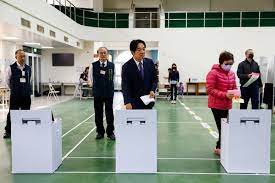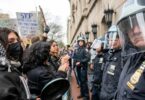Kuni Miyake
In democratic nations, there are consequential elections that alter the trajectory of politics. The December 2012 general election in Japan, which gave Shinzo Abe his second term, and the 2016 US presidential election that saw Donald Trump win are recent examples. In the presidential election held on Jan. 13, Taiwanese voters chose to continue with a pro-autonomy Democratic Progressive Party administration, which wants to continue the status quo with China while maintaining a healthy distance from Beijing. Will this election change the future course of East Asia?
Although editorials in Japan’s major newspapers all praised the maturation of Taiwan’s democracy, they were divided on the path that the island’s new administration should take in the future. For example, conservative newspapers argued that “Lai Ching-te’s greatest responsibility is to protect Taiwan’s freedom and democracy from China” (Sankei) and that “The Xi Jinping administration should respect the popular will expressed in Taiwan and refrain from coercive words and actions backed by military force” (Yomiuri).
The Nikkei also asserted that China should recognize that Taiwan’s society has changed since democracy took hold more than a quarter century ago. In contrast, the liberal Asahi Shimbun argued, “Now that the KMT’s (Kuomintang) return to power on the path of cooperation with China is further away, it is time for Taiwan and China to ease military tensions and resume dialogue.”
The new Taiwanese government may seek to resume dialogue with China, as the liberal press hopes for, although it is Beijing, rather than Taipei, that is reluctant to engage in talks. Many reports in Japan also pointed out that this is the first time in Taiwan’s post-democratization history that a presidential candidate from the same political party has won three consecutive terms. There’s nothing surprising about that since these were democratic elections that faced strong Chinese pressure.
China tried to interfere in the Taiwanese elections through the systematic use of “cognitive warfare,” or the surreptitiously strategic manipulation of information to change perceptions and influence the decision-making and behavior of the voters there. As a result, however, it seems that China’s maneuvering failed again this time.
In particular, former KMT President Ma Ying-jeou told German media just before voting day, “We should trust Xi Jinping” and that he doesn’t believe “Xi is promoting the unification of Taiwan.” That had only the opposite effect and was a political disaster.
For some reason, most Taiwan-related news reports in Japan tend to assume that the KMT is pro-China while the DPP is pro-US – but this is not necessarily the case. Although the gap between the KMT and the DPP is wide, no one in the KMT wants to make Taiwan a part of China. The KMT has an office in Washington to maintain its relations with the United States. It may be better to think that Ma is more pro-China than the KMT is.
This is not the first time Beijing has made mistakes regarding elections in Taiwan: Before the first popular presidential election in 1996, China fired missiles into the Taiwan Strait and Lee Teng-hui won. In the last presidential election before the latest, measures to strengthen security in Hong Kong had the opposite effect, and President Tsai Ing-wen, who had previously been the underdog, was re-elected.
Perhaps because of this, China was extremely cautious this time around, refraining from violent moves and using fake news or other nonmilitary means to sway the Taiwanese electorate. But even so, the Taiwanese voters did not move much.
Another notable result of the election was the rise of a third party, the Taiwan People’s Party. Some even claim that this may mean the end of the traditional two-party era for the KMT and DPP. That remains to be seen. In the 21st century, Taiwan’s economy and society are diversifying beyond the binary argument of “pro-China” or “anti-China.” The emergence of a third party should not come as a surprise.
Two days after the presidential and legislative elections in Taiwan, the Pacific Forum, a think tank in Honolulu, held a symposium titled “Operationalizing Integration in the Indo-Pacific.” The event was attended by distinguished military and civilian guests and experts from relevant countries, including the US’ top officer in the Indo-Pacific, Adm. John Aquilino, and a former prime minister of Australia, Scott Morrison, who engaged in a lively discussion on the security environment in the Indo-Pacific region.
Here’s the takeaway. The US Indo-Pacific command is pursuing a “new concept of operations” due to the drastically different security environment, which is the “most dangerous” in the past 20 years. To face the threat of collaboration among China, Russia, North Korea and Iran, the US military needs to “think, act and operate differently” than in the past and to employ “decision superiority” and to synchronize its posture in all domains with its allies. To that end, speakers at the symposium urged the US Congress to increase the defense budget and called on defense industries to speed up arms production. Otherwise, the international order in the Indo-Pacific risks being altered.
This is the unfortunate reality for global security. Fortunately, the DPP won the presidential election in Taiwan and the status quo is likely to be maintained for the time being.
However, it is unfortunately undeniable that the will of the people can change overnight in democracies – not only in Taiwan but also in the United States and Japan. With the US presidential election looming and Japan’s political situation becoming fluid, Tokyo cannot afford to rest on its laurels after the latest election results in Taiwan.
The Japan Times







